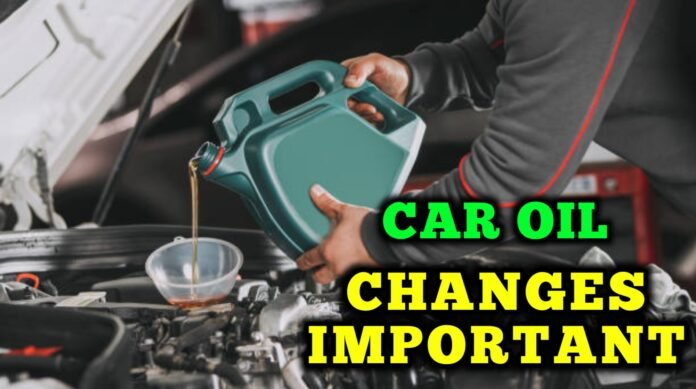Changing the oil in a vehicle regularly is critical to maintaining its overall health and performance. This not only ensures smooth operation of your engine but also extends the life of your vehicle.
In this comprehensive guide, we’ll explore the reasons why oil changes are vital to your car’s well-being, and the consequences of neglecting this essential maintenance task.
Lubrication: Protecting engine longevity
Your car’s engine is a complex network of moving parts operating at high speeds. Without proper lubrication, these components can grind against each other, leading to wear and tear.
Fresh oil acts as a protective barrier, reducing friction and damage to engine parts. Think of it as the lifeblood of your vehicle, keeping everything running smoothly.
Thermoregulation: Keeping cool under stress
Engines generate large amounts of heat during operation. Without adequate cooling mechanisms, this heat can build up, causing overheating and catastrophic damage.
Engine oil plays an important role in dissipating heat, carrying it away from critical areas and ensuring your engine operates within safe temperature limits.
Decontamination: Cleaning for peak performance
Over time, oil accumulates dirt, debris and sludge as it passes through the engine.
Regular oil changes flush out these contaminants, preventing them from spreading further and causing damage. Clean oil means a cleaner engine, leading to improved performance and longer life.
Seal Conditioning: Prevents leaks and seal deterioration
Engine seals are essential to maintain proper compression and prevent oil leakage.
Fresh oil helps stabilize these seals, keeping them flexible and ensuring a tight seal is maintained between moving parts.
By preventing leaks, you not only avoid messy oil spills, but also protect the integrity of your engine.
Fuel efficiency: maximizing mileage and savings
Clean oil reduces friction within the engine, allowing it to operate more efficiently. A well-lubricated engine requires less energy to operate, leading to better fuel efficiency.
By changing your oil regularly, you’re not only extending the life of your engine, you’re also saving money at the pump.
Consequences of neglecting oil changes
Increased friction and wear
As oil breaks down and becomes contaminated, its lubricating properties decrease and friction between engine parts increases.
This friction accelerates wear and tear, causing irreparable damage to key components.
High heat
Insufficient lubrication and impurities can cause the engine to overheat. Over time, this can lead to deterioration of engine parts, loss of performance and even engine failure.
Reduced performance
Lack of proper lubrication negatively affects the overall performance of the machine. You may notice that it compromises your driving experience with low power, sluggishness and poor responsiveness.
Engine damage
Without regular oil changes, the engine is susceptible to significant damage. Components such as pistons, bearings and valves can wear out prematurely, resulting in expensive repairs or even engine replacement.
Poor fuel economy
Dirty and degraded oil can inhibit engine performance, reducing fuel economy. Over time, this can translate to higher fuel costs and reduced savings.
Frequently Asked Questions
- How often should I change my oil?
Regular oil changes are recommended every 5,000 to 7,500 miles, but it’s important to consult your vehicle’s owner’s manual for specific recommendations.
- Can I extend the time between oil changes if I use synthetic oil?
Although synthetic oil offers extended performance and durability, it is still important to adhere to your manufacturer’s recommended oil change intervals.
- What happens if I ignore oil change intervals?
Ignoring oil change intervals can lead to engine wear, reduced performance and possible engine damage, resulting in costly repairs.
- Can I change my oil myself or should I go to a professional?
While it is possible for some people to change your oil yourself, it is recommended to have it done by a professional to ensure it is done correctly and maintain any warranty.
- How do I know if my engine oil needs to be changed?
Keep an eye on your vehicle’s oil level and color. If it’s dark or rough, it’s time for a change. Additionally, pay attention to dashboard warning lights or strange engine noises, as these may indicate oil-related problems.
- Is it worth investing in premium oil for my vehicle?
Premium oils may offer improved performance and longer life, but it’s important to consider your vehicle’s specific needs and consult your owner’s manual for guidance.
Conclusion
Changing the oil in your vehicle regularly is not just a maintenance task; It is an important feature to ensure its longevity and optimal performance. By providing essential lubrication, heat regulation and contamination removal, oil changes play an important role in protecting the health of your engine.
Don’t neglect this simple and effective maintenance routine, as neglecting it can lead to a cascade of problems and costly repairs down the road.
Disclaimer:
This blog post is for informational purposes only and always consult a certified mechanic to diagnose and repair car problems.


